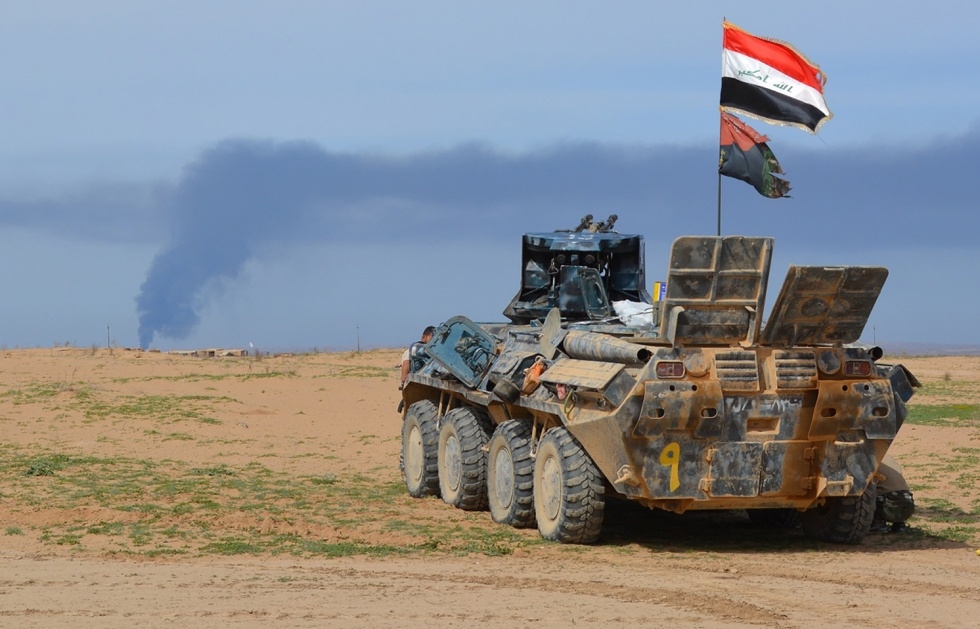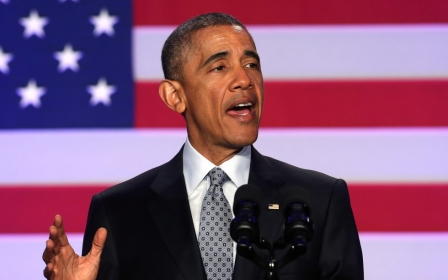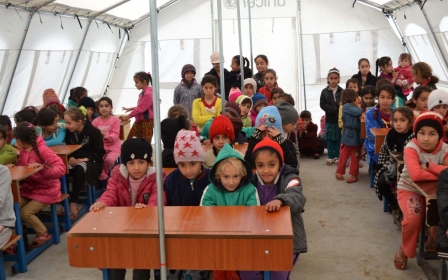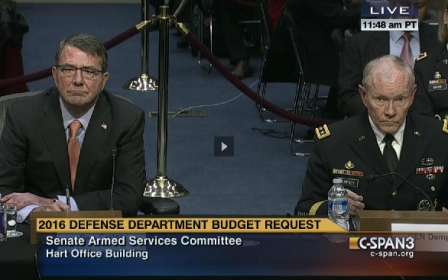The Dhuluyia paradox: Caught between ISIS and the Shiite militia

Who needs enemies when you have the Iraqi government and its sectarian henchmen to liberate you? This is what the population of Dhuluyia has been wondering since it was supposedly freed last December.
After unsuccessfully trying to take the city in late June, ISIS started its revenge offensive against Dhuluyia on 12 July 2014. Its population, notorious in Iraq for its close ties to Saddam’s army and intelligence, still remembered the devastating effects of al-Qaeda’s occupation in the years 2005-2006. They had vowed never to allow any such group to dictate its way of life ever again, so when ISIS knocked at its door, everyone took up arms to repel them.
This did not mean that the people of Dhuluyia were ready to side with the sectarian Maliki government either. They knew that their geographical location, the last Sunni city before the Shiite town of Balad, would mean that they would be heavily punished by Baghdad if they let ISIS in.
Fending off ISIS in the north east of the city, and quarantined by the Iraqi government from its southern gate, Dhuluyia underwent a siege of many months. It was shelled, subjected to chlorine attacks from ISIS, exposed to all kinds of weaponry, and starved. At the height of the crisis, 116 of its dead had to be buried in people’s gardens since the cemetery was not reachable. While the Iraqi government left the city to fend for itself against ISIS, the nearby Shiite population of Balad sent in weapons through the Tigris River. Amidst the Iraqi sectarian crisis, the Dhuluyia-Balad axis showed that sectarian violence is not a fatality in post-Saddam Iraq.
After months of a devastating siege, Dhuluyia’s most influential tribe, the Jibouri, decided that it was time to take sides: it chose the Baghdad Shiite government against what some might believe to be its most natural ally, Sunni ISIS. The Jibouri did so reluctantly because they knew that it could backfire, and it most certainly did.
As soon as the Iraqi government helped the Jibouri regain control of Dhuluyia, the Badr Brigade Shiite militia took charge of the city’s entrance. This group, a prominent player in the ethnic cleansing of Baghdad in the years 2005-2006, is still remembered by all Iraqi Sunnis for the secret prisons where it starved alleged terror suspects, as well as its use of Black & Decker power tools to torment them.
Since they have been given the supervision of Dhuluyia, the Badr Brigades have started to victimise the population by intimidating them, randomly arresting motorists coming in the out of the city, stealing some of their possessions, etc. Two weeks ago, two residents were detained on no valid grounds, only to be forcefully freed by the police chief. Outside, the all-Iranian al-Khorassani Brigades controls the unique access road to the city. It randomly detains terrified motorists, subjecting them to all kinds of torture such as burning plastic bags on their bare backs. Around Dhuluyia, the villages that did not have the resources to fight off ISIS were simply burned to the ground. Tal-Ampson, Ishaki, Aziz Balad, Tal al-Dahab and Yathib are in ruins since January.
In the midst of the Iraqi army Tikrit offensive, the story of Dhuluiya and its surroundings is not to be taken lightly. It raises questions as to the fate of all Sunni areas to be liberated by the Iraqi government in the next few days or weeks. It also shows that ISIS is only the tip of the Iraqi political iceberg, but that the core of the issue remains sectarian.
The crisis engineered by the sectarian Baghdad government last year, which allowed for ISIS to flourish and gain the population support it so badly needed, has not gone away. It is not likely to subside with the presence of Iraqi and Iranian Shiite militias on the ground - quite the contrary. The fact that the Iraqi government allows those militias, indirectly armed by the US, to act in all impunity against “liberated” populations indicates that nothing will change any time soon for Iraqi Sunnis and the country as a whole. In the midst of this, what are the Sunnis left to choose: the terrorism of ISIS or that of the Iraqi government and its henchmen?
Dhuluyia residents look upon the “liberation” of other parts of their country with incredulity, and are left to wonder what would have happened to them if they had sided with ISIS. Would they have been burned to the ground like their neighbours? Would they be even more victimised by the Badr Brigades on a daily basis?
As reports start to emerge of liberated Diyala populations fleeing Shiite militias in terror, the presence of militias on the ground can certainly be a way for the Iraqi government to avoid breaking international humanitarian law itself. As its great ally the US government did before, with the outsourcing of torture to its Middle Eastern clients during the war on terror, the Iraqi government can let militias carry out its Saddam-like dirty war against its own population.
The international community has been focused solely on ISIS for too long. It is time for the Iraqi crisis to be given the context that it deserves, and for the allies of the sectarian Baghdad government, namely the US and the United Nations, to realise that their Iraqi policies are bankrupt. Should they fail to prevent “liberated” cities from falling into the claws of Shiite militias, they can be held directly responsible for the strengthening of ISIS.
- Dr Victoria Fontan is Interim Chair of the Politics and Public Policy Department, American University Duhok Kurdistan; she is also a Doctoral Candidate in War Studies at King’s College London.
The views expressed in this article belong to the author and do not necessarily reflect the editorial policy of Middle East Eye.
Photo: Iraqi pro-government forces hold a position in al-Alam village (AFP)
New MEE newsletter: Jerusalem Dispatch
Sign up to get the latest insights and analysis on Israel-Palestine, alongside Turkey Unpacked and other MEE newsletters
Middle East Eye delivers independent and unrivalled coverage and analysis of the Middle East, North Africa and beyond. To learn more about republishing this content and the associated fees, please fill out this form. More about MEE can be found here.





